Politics
/ArcaMax

Commentary: Mass deportation is unlikely. Micro-deportations are the graver concern
With President-elect Donald Trump’s inauguration days away, much attention is focused on the rhetoric and reality surrounding his first day back in office. Per one count, Trump has made 41 day-one promises, with mass deportation topping the list. We should be more worried about micro-deportations.
The mass deportation rhetoric is loud and ...Read more

Noah Feldman: Yes, Trump could declare an economic emergency for tariffs
President-elect Donald Trump reportedly is considering declaring a national economic emergency to give him legal cover to impose tariffs. Wait, you say. There is no national economic emergency. Surely, Trump would be breaking the law if he declared a nonexistent emergency to give himself more power.
If only it were so simple. Under the ...Read more

Lisa Jarvis: It's time to rethink how safe alcohol is
January is that time of year when we pause to examine our health habits, and Surgeon General Vivek Murthy issued an advisory with an important data point to consider: the strong link between alcohol consumption and cancer.
Murthy’s warning is a needed and long overdue step toward helping Americans better understand the effects of even ...Read more
Commentary: Why some students need trades education
I know more than a handful of West Side teenagers who can carjack Kia Optimas with a USB cable, but I also know nearly 100 Chicago students who can operate the excavators that are used in construction. While these tasks involve similar skills, the choice between the two can mean wildly different consequences for the course of these young people�...Read more

Commentary: Elon Musk and Americans are wrong about term limits
Shocking news recently broke that former Texas GOP Rep. Kay Granger, a 14-term veteran of Congress, was living in a senior facility while still a sworn member of the U.S. House.
The revelation reignited the decades-old debate over congressional term limits, this time supercharged by tech billionaire Elon Musk. Taking to X, the social platform ...Read more

Michael Hiltzik: With attacks on the lowly delta smelt, Trump and the GOP launch baseless claims about fire and water
Pity the poor delta smelt.
The tiny fish, which seldom grows to more than four inches or lives longer than a year, was once abundant in the Sacramento-San Joaquin Delta. It was an important link in the delta food chain, and valued as a food fish by local residents at least through the 1920s.
By the mid-1980s, however, the delta smelt was on ...Read more

Marc Champion: What if Trump were to rule like Putin?
Donald Trump has refused to rule out using force to acquire Greenland from Denmark or the Panama Canal from Panama. Don’t rule out that he might just mean it.
The mere thought that America would extort or go to war with a close NATO ally to illegally change their sovereign borders seems ridiculous. Presumably, it is. Yet the threats also ...Read more
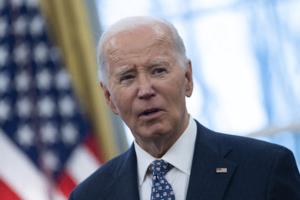
Editorial: Billions for virtually nothing
Biden surrogates insist that the massive spending bills which triggered the inflation that helped bring down Democrats in November will pay large dividends in coming years. As President Joe Biden shuffles off the stage this month, it’s worth taking a closer look at this claim.
The 2021 Infrastructure Investment and Jobs Act (in progressive-...Read more

Editorial: Produce the WTC documents: Decades of hiding the truth must end
The heroes and victims of 9/11 who are suffering terrible and sometimes lethal medical problems from exposure to the toxic cloud that arose when Al Qaeda terrorists destroyed the World Trade Center have a right to know what City Hall knew decades ago about the environmental risks from Ground Zero. Any records being held by New York City and its ...Read more

Steve Lopez: After years of helping the homeless, he's one of them after Altadena fire destroys his house
LOS ANGELES -- His job, for more than a decade, has been to steer homeless people into housing.
Last week, social worker Anthony Ruffin lost his home.
On Monday morning, still reeling five days after the Eaton fire destroyed much of Altadena, Ruffin, 56, sipped coffee at a Glendale diner, wiped his eyes, and described the historic Black ...Read more
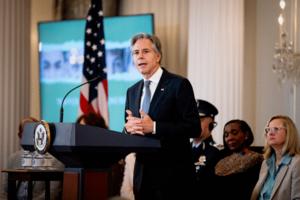
Commentary: Pass the Trafficking Survivors Relief Act
In 2000, years after I had escaped human trafficking, I was pulled over for having a nonfunctioning tail light. By then I had rebuilt my life. I had a great job and a nice apartment. But when the police officer pulled me over and ran my information, he found a bench warrant for my arrest.
The warrant was a remnant of my past that I didn’t ...Read more
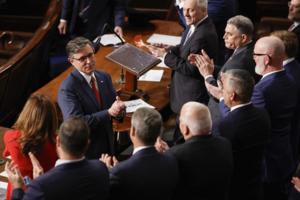
Commentary: GOP takes charge, faces huge fiscal hurdles
The GOP has a tough task ahead: dealing with a looming financial crunch in Washington. Key parts of the 2017 Tax Cuts and Jobs Act (TCJA) will expire, adding to the national debt, which has already hit $36.1 trillion.
Contributing to the problem, the spending ceiling under the Pay-As-You-Go Act will require $190 billion in cuts, and ...Read more

Mary McNamara: Fire is part of LA's ethos. But this Angeleno is asking, 'Is it time to go?'
"Is it time to go?"
That's the question my husband and I have been asking ourselves with traumatic regularity over the past seven days. As we watched the Eaton fire erupt in nearby Altadena, we wondered. When we got the evacuation warning alert, we answered: We packed the car, took a few additional minutes to scoop up some photo albums and left...Read more

Commentary: Beautiful Altadena's one-of-a-kind town was destroyed. But we can rebuild
When asked what was the best place for lunch in Altadena, I often recommended Fox’s Restaurant on north Lake Avenue. Their elevated take on the BLT — stacked with roasted red pepper and goat cheese — paired well with a crisp Sauvignon Blanc. For dinner, the generous plate of fish and chips was a must. The kitschy diner’s decor remained ...Read more

Editorial: Playing politics with Justice: Trump DOJ broke the rules on leaks about COVID nursing homes probes
Donald Trump has endlessly complained about the Department of Justice abusing its wide-reaching powers to make improper political attacks on him. But it was the DOJ under Trump himself that did exactly that to the Democratic governors of New York and New Jersey in late October 2020, violating department policy. So says the DOJ’s own ...Read more

Commentary: Why Israel can't just 'cut the head off' of Hamas or Hezbollah
Since the horrific Hamas terrorist attacks of Oct. 7, 2023, Israel has been at war in the Middle East. The conflict has stretched across borders, spanning Gaza to Lebanon to Iran. Over the course of 15 months, the Israel Defense Forces and Israel’s intelligence services have taken the fight directly to Hamas and Lebanese Hezbollah, two of the ...Read more
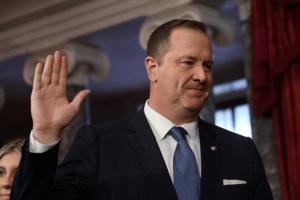
Editorial: Increasing use of coarse language in seats of power reflects a broader decline
The term “presidential” has long referred to a way a person carries himself and the significance of the office. It also can refer to the people the president surrounds himself with.
After the rapid evolution of public discourse in recent years — some might convincingly call it devolution — we wonder whether the term will survive another...Read more

Commentary: California utilities have lofty climate goals. Too bad their customers are in the dark
Regardless of the presidential election results, the clean energy transition is still a major priority for the nation’s electric utilities. Perhaps nowhere in the world is the pressure more intense than in Southern California, where the demands on the power grid are high and many residents are well acquainted with the consequences of aging, ...Read more
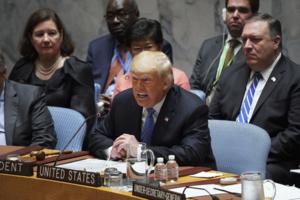
Commentary: The improvement Trump could make to US foreign policy
Donald Trump was hardly a steward of responsible global governance in his first term. His withdrawal from multilateral agreements, including the Iran nuclear deal and the Paris climate accords, showcased an unusual disdain for international institutions and cooperation. He has little evident regard for the “rules-based international order” ...Read more

Matthew Yglesias: Trump and Republicans are avoiding the hard questions
One bill or two? That’s the question currently obsessing Washington as President-elect Donald Trump fails to decisively resolve a tactical disagreement between House and Senate Republicans.
John Thune, the new Senate majority leader, wants the party to pass two bills through the filibuster-dodging budget reconciliation process: The first ...Read more


























































